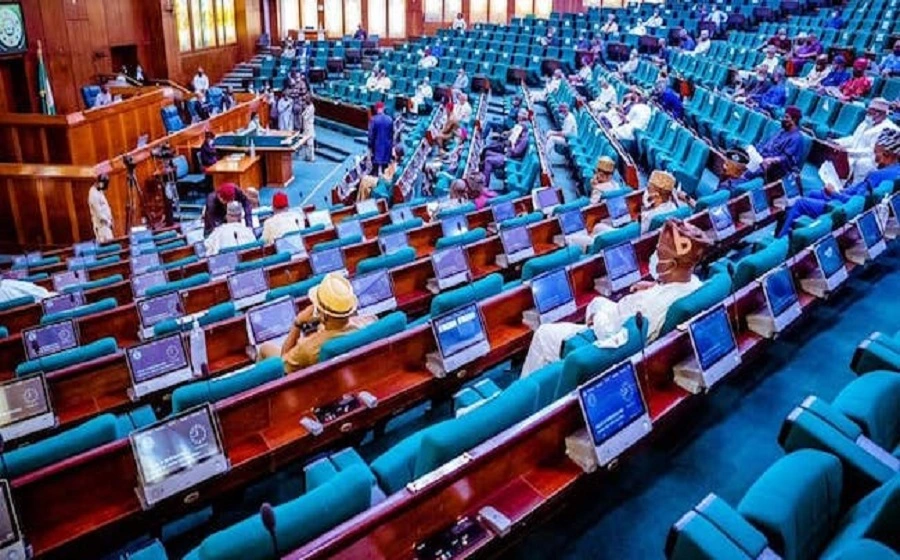Reverse petrol price now, reps’ minority caucus tells FG
The Minority Caucus of the House of Representatives has asked the federal government to reverse the recent increase in the price of petrol by the Nigerian National Petroleum Company Limited (NNPCL). The Minority Leader of the House of Representatives, Kingsley Chinda, in a statement on Thursday, described the hike as “not only ill-timed, but also […]

House of Reps
The Minority Caucus of the House of Representatives has asked the federal government to reverse the recent increase in the price of petrol by the Nigerian National Petroleum Company Limited (NNPCL).
The Minority Leader of the House of Representatives, Kingsley Chinda, in a statement on Thursday, described the hike as “not only ill-timed, but also grossly insensitive to the harsh economic conditions currently being experienced by Nigerians across the country.”
He said the minority caucus stood with the Nigerian people in rejecting the petrol price hike and would continue to advocate policies that prioritised the welfare and wellbeing of all citizens.
Similarly, the member representing Tudun Wada/Doguwa Federal Constituency of Kano State in the House of Representatives, Alhassan Ado Doguwa, urged the federal government and the Nigerian National Petroleum Company Limited to take urgent steps to revert the recent hike in petrol pump price.
- We’ll deploy our might to protect Dangote refinery – NUPENG
- Price regulation: NECA urges FCCPC to understand market forces
In a statement issued on Thursday, Doguwa who chairs the House Committee on Petroleum Resources (Upstream) described as unacceptable, a situation where private companies take advantage of gaps in the system to make arbitrary profits at the expense of Nigerians.
Also, the National Working Committee (NWC) of the New Nigeria People’s Party (NNPP) has condemned the President Bola Tinubu-led APC government’s handling of the national economy, calling it “grossly incompetent” and warning that the petrol price hike would exacerbate inflation and deepen poverty.
The ActionAid Nigeria (AAN) has urged President Bola Ahmed Tinubu to take urgent actions on the recent hike in fuel prices, saying the N897 per litre of petrol will push millions of Nigerians deeper into poverty and worsen the current economic situation in the country.
The Country Director, AAN Andrew Mamedu, in a statement he personally signed Thursday said that the sudden hike of the pump price of PMS would plunge Nigerians into deeper economic woes and excruciating pains.
The Director-General, Global Initiatives for Good Governance (GIGG), Dr. Emeka Kalu, in a statement on Thursday, described the recent hike in the price of Premium Motor Spirit (PMS) otherwise known as petroleum as the height of insensitivity.
The presidential candidate of the Social Democratic Party, (SDP) in the last election, Prince Adewole Adebayo, harped on the need for the government to invest massively in public transportation and treat energy issues as national security matters just the way the United States of America, Russia and the United Kingdom are doing.
Adebayo, while frowning at the current hardship being faced by Nigerians, declared that it is the primary responsibility of the government, whether using market rules or policy tools, to ensure that petrol is available and reliably delivered to the nearest station.
He said, “We need to invest in public transportation. Nigeria has not reached a level where every man and woman would have to have a car. We can set up plants, where whether in partnership with people in Brazil or in Asia, by the time you produce 50,000, 100,000 public buses that are on CNG, some of them could even be on electric.
“But there must be a national programme that is not political in nature, or not palliative in nature, especially at campaign season. “By that, we reduce petroleum consumption by 75% in the life of one administration”, he said.
Speaking further of the issue of petroleum scarcity and the attendant problems, Adebayo said, “My own ideology is that we should continue to treat it as national security, just the way the United States of America is treating it, Russia is treating it, the United Kingdom is treating it. If you treat it that way, then you will know that it is the responsibility of the government, whether using market rules or policy tools to ensure that petrol is available and reliably delivered to the nearest pump and that it is not busting the budget”.
Commenting on the issue of the nation’s refineries, he said, “The next question we should be asking is what happens to the four refineries owned by the public, three of which have been undergoing turn around maintenance for years, since I was a young boy.
“It may be possible that Port Harcourt or Warri refineries may even have more prospect of coming on stream before any other private refineries come on stream to have.”
